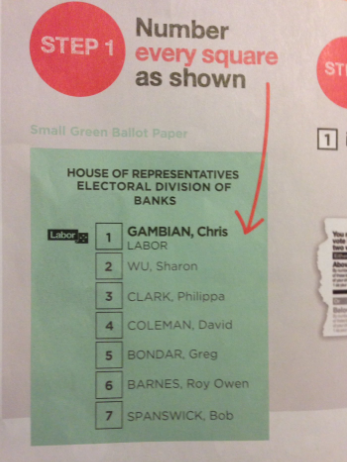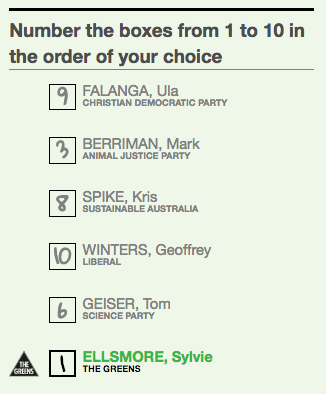Why Are The Greens And Labor Preferencing Homophobes This Election?
Political parties get way more angry about preferences than anyone else.

Even though the election is still officially two and a half weeks away (ugh, end already), early voting kicked off this week, which means all parties and candidates were forced to declare their preference recommendations.
There’s been a whole lot of talk so far this campaign about preferences and preference deals, but the latest controversy revolves around the decision made by the Greens in the electorate of Sydney to recommend voters preference Fred Nile’s Christian Democratic party ahead of the gay, Indigenous Liberal candidate, Geoffrey Winters.
The decision has provoked a lot of outrage given Fred Nile’s well known homophobic views. But what exactly have the Greens done, why did they do it and does it actually matter?
First up, it’s important to understand that political parties can’t actually control your preferences. All they can do is recommend that you order candidates in a particular way. They do that by handing out pieces of paper at polling booths called “how-to-vote cards”.
The Greens how-to-vote card in Sydney, unsurprisingly, recommends you give your first vote to the Greens candidate, Sylvie Ellsmore. But controversially, it recommends placing the Christian Democratic Party ahead of the Liberal candidate. It’s a reversal of the Greens recommendation at the last election, which recommended voters put the Liberals ahead of the Christian Democrats.
Sylvie Ellsmore, the Greens candidate for Sydney, has justified the decision: “The Liberals and Christian Democratic party policies are both polar opposite to the Greens. If we had our way, we wouldn’t preference either of them,” she said.
“At the end of the day, the only parties with a remote chance of winning this seat are the Greens, Labor and the Liberals. Many people in the community contacted us to ask us to put the Liberals last.
“It is the Liberal Party government that is damaging this country and threatening our future on a daily basis.”
The Liberals have placed the Christian Democratic party second on their how-to-vote card.
But the shenanigans in Sydney aren’t the only preference decision that’s raised eyebrows this week.
In the marginal NSW seat of Banks the Labor candidate, Chris Gambian, has come under fire for recommending voters preference Family First ahead of the Greens.

Labor’s preference recommendations in Banks, placing Family First candidate Sharon Wu ahead of the Greens.
That’s the same Family First whose Tasmanian Senate candidate recently tried to link the Orlando attack to same-sex marriage.
It looks like Labor has allocated its preferences straight down the ballot paper in an attempt to make voting easier, without considering the policies of the actual candidates.
Both these decisions seem very weird, and at odds with the values and principles of both Labor and the Greens. But will they actually have any impact?
Probably not.
In Banks, Labor is almost certainly going to be in the final, two-party preferred count, meaning its preferences will never be distributed. Basically that means that even if every Labor voter followed through with the recommendation to put Family First “2”, no votes would actually flow to Family First.
In Sydney the Greens will almost certainly outpoll the Christian Democrats, meaning none of their votes will flow to them either. The Greens will either be in the final two-party preferred count themselves against Labor, or have their preferences flow on to Labor in a head-to-head contest with the Liberal party.
So the practical consequence of these decisions is basically negligible. But preferences do send an important symbolic message, and it’s for that reason these decisions have been criticised.
Political parties obsess over preferences because it makes them look like they have more power and control than they actually do. The most important thing to remember about preference recommendations is that they are simply that: recommendations. If you aren’t happy with what political parties at thrusting into your arms as you grab a cheeky sausage on the way to the polling booth just ignore them.
You, the voter, have total control over how you vote.
